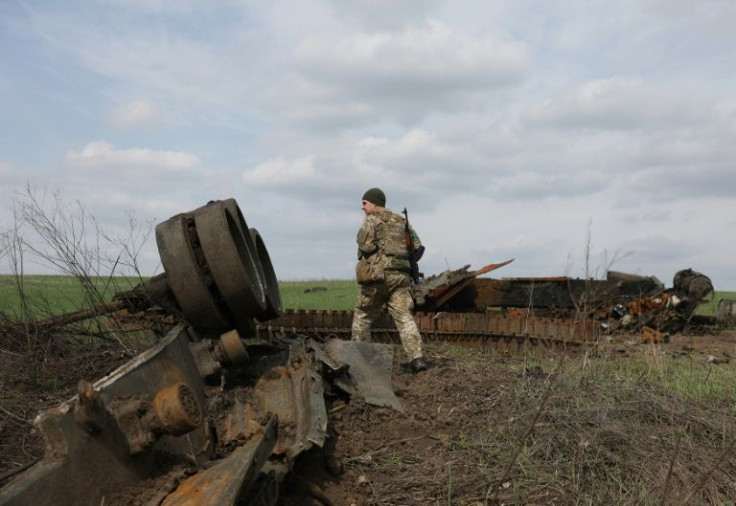74,000 Russian Soldiers Have Died In Ukraine War; 730 Eliminated On Thursday

KEY POINTS
- Russia has suffered 74,000 combat losses among its personnel since invading Ukraine
- Losses also included 2,734 tanks and 5,552 AFVs, among other pieces of military equipment
- Russia has been able to call up 300,000 reservists amid mounting casualties in Ukraine
Russia has suffered 74,000 casualties since invading Ukraine, with its most recent losses including 730 soldiers, 20 tanks and 27 armored fighting vehicles.
The 74,000 combat losses among Russian personnel were recorded between the start of the conflict on Feb. 24 and Thursday, the General Staff of the Armed Forces of Ukraine said in a casualty report.
Russia also lost 2,734 tanks and 5,552 AFVs, among other pieces of military equipment, within the same period.
A previous casualty report released by the General Staff of the Armed Forces of Ukraine Wednesday said that Russia had lost 73,270 personnel, 2,714 tanks and 5,525 AFVs up to that point.
But independent Russian media outlet iStories reported on Oct. 12, citing unnamed sources from Russia's special services and the country's Federal Security Service, that Russia has suffered more than 90,000 casualties in its invasion of Ukraine.
Russian Defense Minister Sergei Shoigu previously claimed on Sept. 21 that the fatalities among Russian soldiers from the ongoing conflict numbered 5,937.
In contrast, Ukraine had allegedly lost more than 61,000 troops, he claimed.
Russia was able to call up 300,000 reservists following Russian President Vladimir Putin's announcement of mobilization in late September.
Around 87,000 draftees have already been sent to "areas where the special military operation is conducted," according to Shoigu.
The Russian government refers to the invasion of Ukraine as a "special military operation."
Despite Russia's efforts to mobilize troops, the additional forces generated by the initiative "are unlikely to add substantially to the Russian military's net combat power in 2022," according to the Institute for the Study of War (ISW).
"The Russian Armed Forces have not been setting conditions for an effective large-scale mobilization since at least 2008 and have not been building the kind of reserve force needed for a snap mobilization intended to produce immediate effects on the battlefield," the U.S.-based think tank said.
"Putin will have to fix basic flaws in the Russian military personnel and equipment systems if mobilization is to have any significant impact even in the longer term. However, Putin's actions thus far suggest that he is far more concerned with rushing bodies to the battlefield than with addressing these fundamental flaws," the organization added.

© Copyright IBTimes 2024. All rights reserved.





















